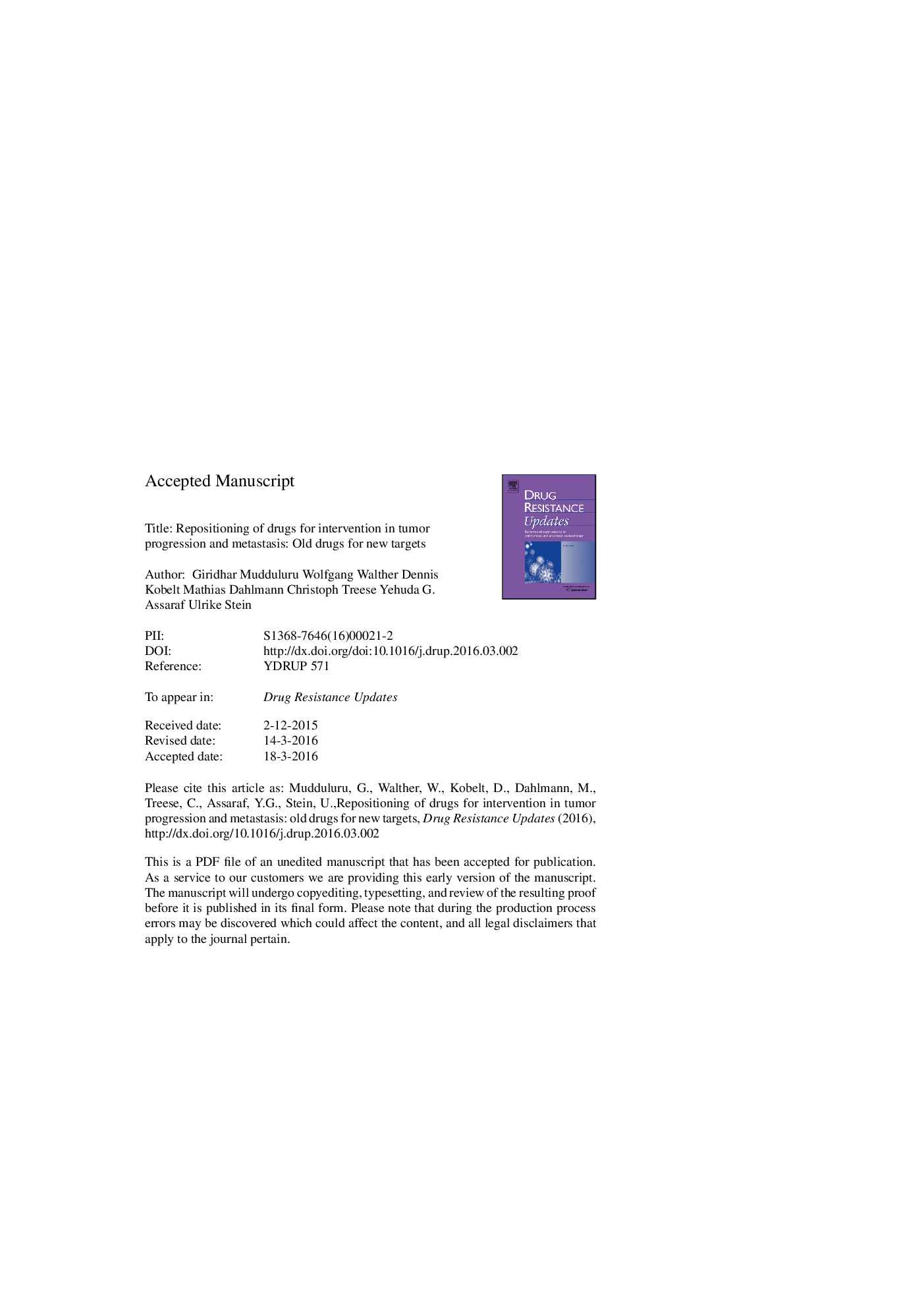| Article ID | Journal | Published Year | Pages | File Type |
|---|---|---|---|---|
| 8436689 | Drug Resistance Updates | 2016 | 43 Pages |
Abstract
The increasing unraveling of the molecular basis of cancer offers manifold novel options for intervention strategies. However, the discovery and development of new drugs for potential clinical applications is a tremendously time-consuming and costly process. Translating a novel lead candidate compound into an approved clinical drug takes often more than a decade, and the success rate is very low due to versatile efforts including defining its pharmacokinetics, pharmacodynamics, side effects as well as lack of sufficient efficacy. Thus, strategies are needed to minimize time and costs, while maximizing success rates. A very attractive strategy for novel cancer therapeutic options is the repositioning of already approved drugs. These medicines, approved for the treatment of non-malignant disorders, have already passed some early costs and time, have been tested in humans and are ready for clinical trials as anti-cancer drugs. Here we discuss the repositioning of nonsteroidal anti-inflammatory drugs (NSAID), statins, anti-psychotic drugs, anti-helminthic drugs and vitamin D as anti-tumor agents. We focus on their novel actions and potential for inhibition of cancer growth and metastasis by interfering with target molecules and pathways, which drive these malignant processes. Furthermore, important pre-clinical and clinical data are reviewed herein, which elucidate their therapeutic mechanisms which enable their repositioning for cancer therapy and disruption of metastasis.
Related Topics
Life Sciences
Biochemistry, Genetics and Molecular Biology
Cancer Research
Authors
Giridhar Mudduluru, Wolfgang Walther, Dennis Kobelt, Mathias Dahlmann, Christoph Treese, Yehuda G. Assaraf, Ulrike Stein,
